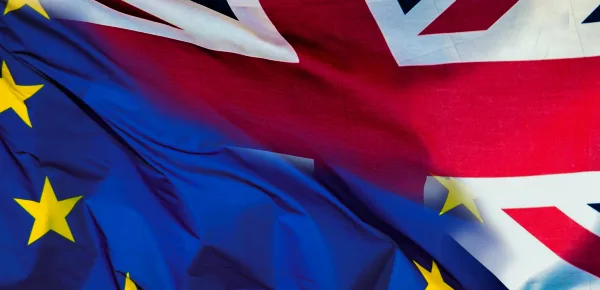At the Cabinet meeting at Chequers, the Prime minister and her colleagues will, theoretically, decide on the UK’s official position regarding our future association with the EU. The Cabinet will discuss what we now believe to be potential three proposals put forward by Mrs. May, eventually adopting one of these as official government policy.
These proposals are needed because of the government’s decision to withdraw the UK from the customs union after the end of the Brexit transition period in 2020.
In short, a customs union is a trade agreement between countries. These countries do not impose taxes on each other’s’ imports and allow goods to be traded without arduous checks at the border whilst agreeing to impose common external tariffs on goods and services from outside the union. The main reason the UK are choosing to leave the EU customs union is because the EU insist on freedom of movement of people, as well as goods and services inside this union, a key reason why many people voted to leave the EU.
Brexit decision: The alternatives
Originally, the government had only spoken publicly about two potential customs options, but in recent days, a third potential option has been discussed.
The whole point of the Cabinet meeting on Friday is to pick one of these options.
The first is described as a customs partnership. This proposal would mean the UK would choose to apply the EU’s own tariffs to all products arriving in the country and then, should any of these goods end up in the EU, pay the EU the tariffs they would have received if the UK was still a member of the customs union. The second option, known as maximum facilitation (or 'max-fac') proposes that both the UK and EU use new technology in order to remove any new arduous physical customs checks at the border.
These two options are extremely complicated and have left the public confused and disengaged with the entire process.
However, for many reasons, it seems both of these options have now become either “practically or politically undeliverable” according to the BBC and thus the government have started work on a third proposal. This option is suggested to involve an alignment with EU regulations in the manufacturing and selling of goods and services, but there is little public knowledge about this proposal as of yet.
Theresa May cannot win: It’s a lose-lose-lose situation
At the moment, the Prime minister has three groups who she is trying to keep happy: ‘Remainers’, ‘Leavers’ and the EU. But if Mrs May has learnt anything in this job, it is that it is impossible to keep everyone happy all of the time.
The so-called Brexiteers prefer the max-fac option as they feel that charging import taxes on behalf of the EU would keep us in the customs union in all but name.
This can be seen by the allegation that prominent Leaver Michael Gove MP, the Environment Secretary, physically ripped up a report on the customs partnership option as it downplayed his objections to it.
The pro-EU members of the Cabinet want a relationship as close as possible with the EU and thus favour the partnership option as they suggest it would be better for UK businesses. They feel that the ‘max-fac’ option is not viable as technology can only go so far in reducing physical checks on goods and would, therefore, increase administration costs and time when it comes to trade.
As for the EU, they just want a clear Brexit proposal from the UK. For months now, many EU leaders, as well as the President of the European Council, have been warning the UK that time is running out and that a serious policy proposition is needed.
Although the EU has already stated issues it has with both proposed plans, the worst outcome for the EU would be that neither of these plans gets formally adopted, or that the third proposal, which is still so vague, be explored further. They want clarity from the UK, which it has not received so far.
Thus, it looks as if whatever is decided at the Cabinet meeting on Friday, Theresa May will make enemies and could face possible resignations, depending on the decision she makes. The only saving grace for the Prime minister at this time is that her job is so difficult and alienating, that a potential leadership challenge is unlikely, as no other Tory MP wants to take on the challenge.
